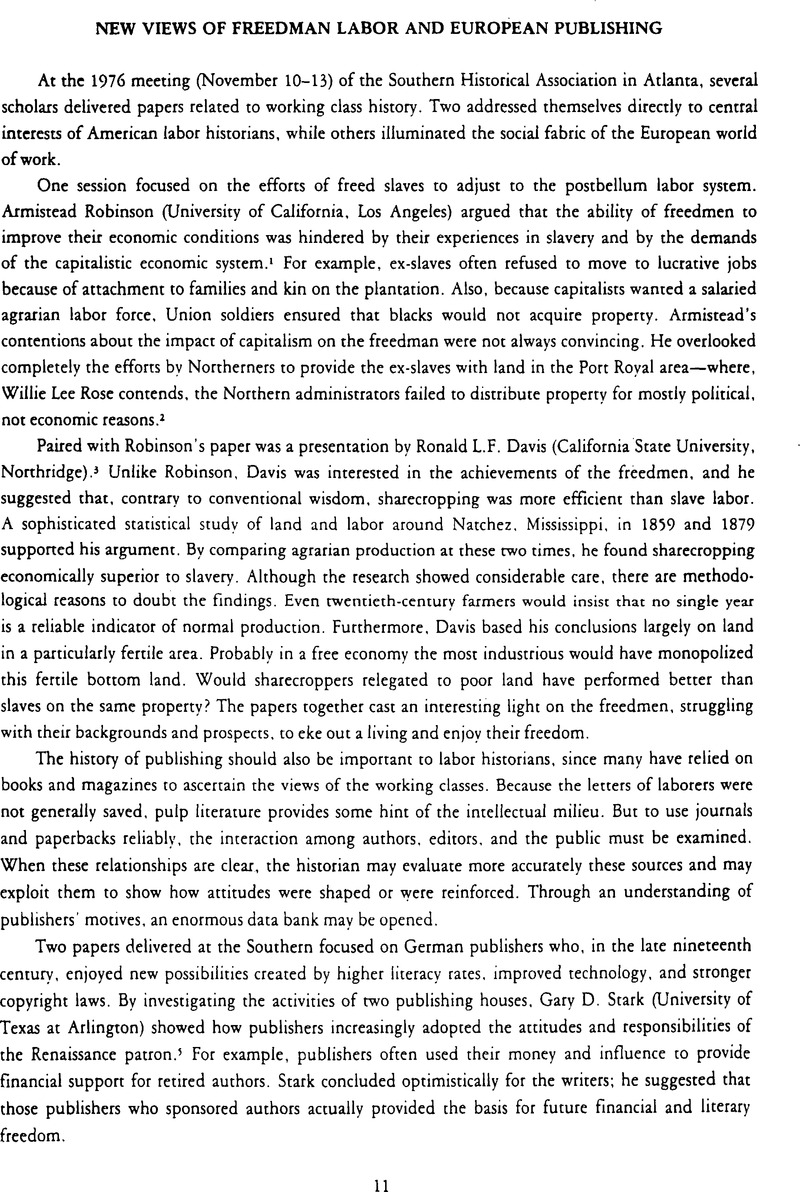No CrossRef data available.
Published online by Cambridge University Press: 09 April 2017

1. Armistead Robinson, “The Bottom Rail on Top, Dis Time' Sure: Freedmen and the Adjustment to Free Labor in the Civil War.”
2. Willie, Lee Rose.Rehearsal for Reconstruction: The Port Royal Experiment (Indianapolis: Bobbs-Merrill. 1964).Google Scholar
3. Ronald, L. F. Davis. “The Relative Efficiency of Slave and Sharecrop Labor: A Comparative Analysis.” Louis S. Gerteis, of the University of Missouri. St. Louis, was the commentator for this session on freedmen, and his remarks were judicious and incisive.Google Scholar
4. For an example, see Galambos, Louis. The Public Image of Big Business in America. 1880–1940: A Quantitative Study in Social Change (Baltimore: Johns Hopkins, 1975).Google Scholar
5. Stark, Gary D., “Publishers and Cultural Patronage in Germany. 1890–1933.”Google Scholar
6. Fullerton, Ronald A. “German Publishers and the Masses in Wilhelmian Germany.”Google Scholar
7. Andrew Lees. Rutgers University. Camden.
8. Fullerton. p. 13.
9. Lees and Charles E. McClelland. University of New Mexico.
10. See Robert, Mandrou.De la Culture populaire aux 17e et 18e siècles. La Bibliothèque bleue de Troyes (Paris, 1964).Google Scholar
11. See Frances, Acomb. Mallet du Pan 1749–1800: A Career in Political Journalism (Durham: Duke University Press. 1973)Google Scholar and Raymond, Birn.Pierre Rousseau and the Philosophes of Bouillon (Geneva: Studies on Voltaire and the 18th century. Vol. XXIX. 1964).Google Scholar
12. Pensions were usually available for authors who had worked for one publisher for a long time. Journals often used indemnities that were awarded in copyright disputes to fund these stipends.